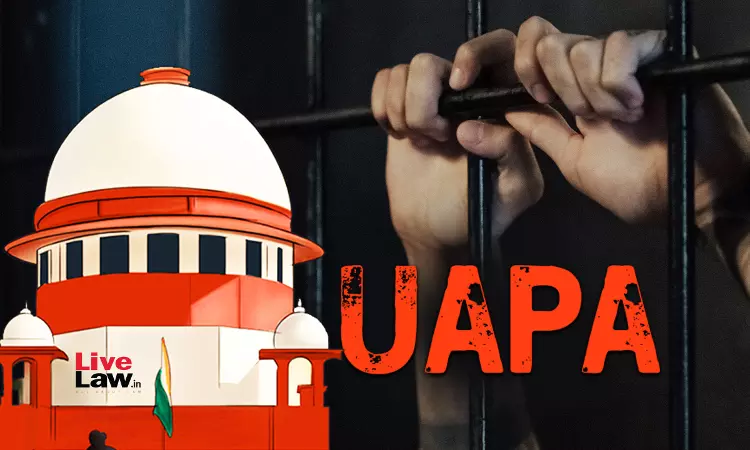UAPA Sanction Should Be Challenged By Accused Ordinarily At Earliest Opportunity : Supreme Court
Gursimran Kaur Bakshi
23 Sept 2024 8:31 PM IST

Next Story
23 Sept 2024 8:31 PM IST
The Supreme Court has held that a sanction for prosecution under the Unlawful Activities Prevention Act (UAPA) can be challenged on grounds such as the authority has not applied its mind or that the materials were not sufficient. However, such challenge by the accused must ideally be raised at the earliest opportunity.The Court also noted that the UAPA does not have any provision like the CrPC...
